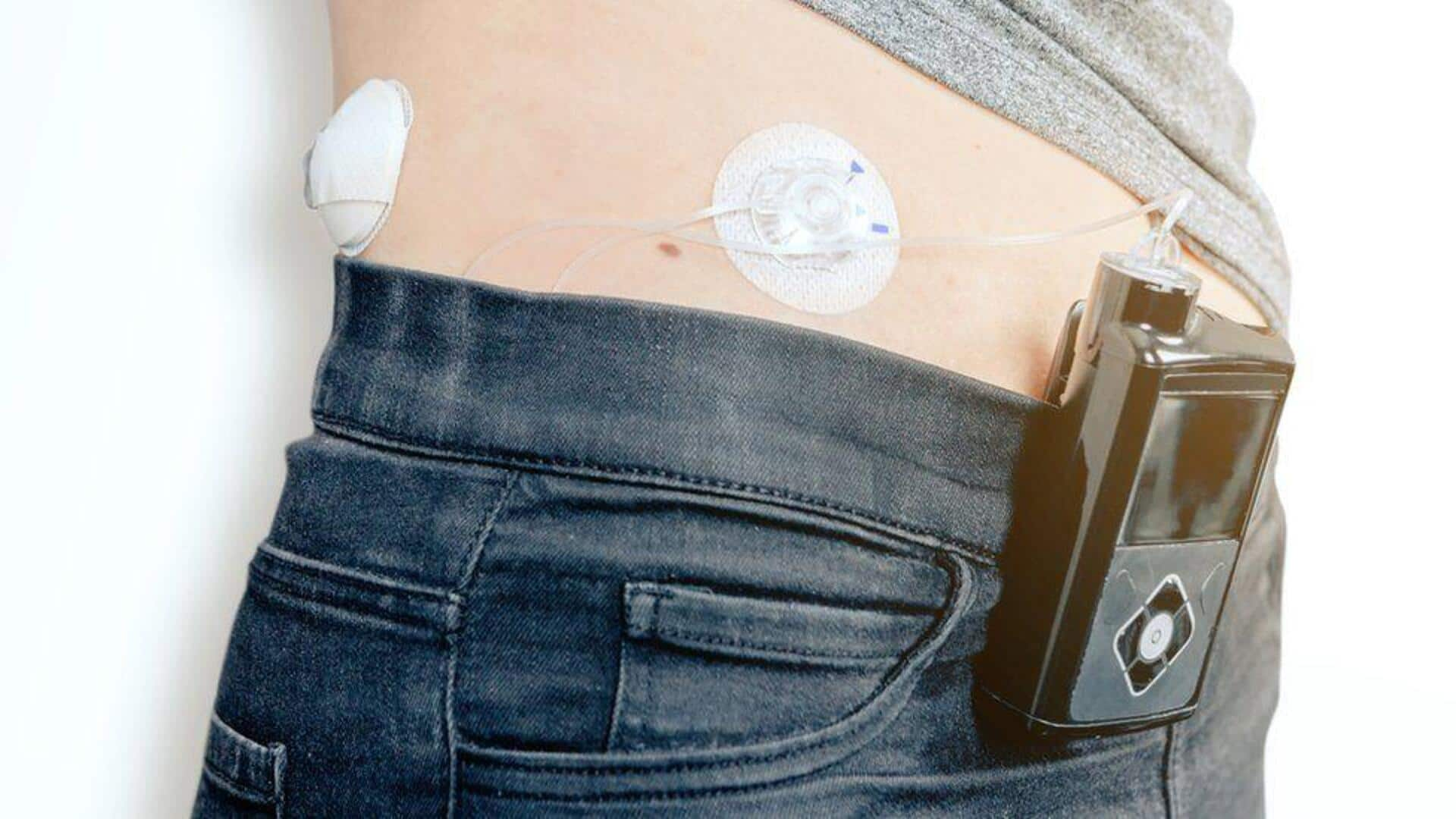
UK's NHS providing 'artificial pancreas' to Type 1 diabetes patients
What's the story
The National Health Service (NHS) in the UK is preparing to offer an "artificial pancreas" to thousands of adults and children, diagnosed with Type 1 diabetes. This decision comes after the successful trial of the Hybrid Closed Loop System, also known as the artificial pancreas. The device, designed to continuously monitor blood glucose levels and adjust insulin dosage, is expected to significantly improve management of the disease.
Technological breakthrough
Artificial pancreas: A potential game-changer in diabetes management
The artificial pancreas system comprises a blood sugar monitor, an insulin pump, and smartphone software that work together. According to Diabetes UK, this technology could eliminate the need for some users "to draw blood with a finger prick test or manually inject insulin." The NHS believes that "this could prevent life-threatening hypoglycemic and hyperglycemia attacks," that can cause seizures, comas, and even death in Type 1 diabetes patients.
Funding allocation
NHS allocates £2.5m for the initiative
Currently, over 269,000 individuals in England are living with Type 1 diabetes, costing the NHS approximately £10 billion annually, which constitutes 10% of its total budget. To kickstart this new initiative, local NHS services have been granted £2.5 million, to begin treating eligible patients with the artificial pancreas system. This move is expected to alleviate some of the financial burden associated with diagnosing and treating the condition.
Pilot success
Successful pilot program paves way for wider rollout
The pilot program of the artificial pancreas system benefited 835 adults as well as children with Type 1 diabetes. Among them is a person from West Devon called Les Watson, who has been living with the disease for nearly 44 years. He uses his phone in combination "with an insulin pump and a monitoring patch on his arm," demonstrating the practical application of this innovative technology.
Professional acclaim
Healthcare professionals applaud artificial pancreas initiative
Dr. Clare Hambling, the National Clinical Director for diabetes, praised the initiative as an example of the NHS leading in healthcare. She emphasized that "this transformative technology holds the power to redefine the lives of those with Type 1 diabetes," promising improved quality of life and clinical outcomes. Diabetes UK's Chief Executive, Colette Marshall, also expressed her enthusiasm about the rollout, describing it as a landmark moment that can make a "significant, life-changing difference for patients."